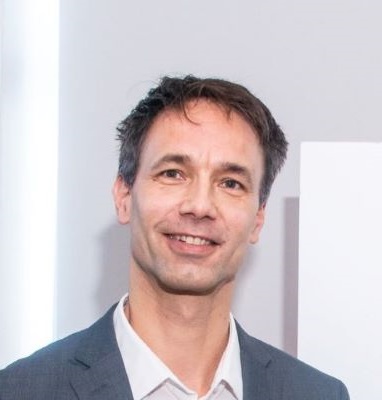Dr. Günther Jikeli's course COLL-C 103 Critical Approaches to Arts & Humanities: Researching White Supremacism and Antisemitism on Social Media examines how some older myths from the European Middle Ages are still relevant today and how they are reformulated and disseminated on social media. In order to do so, we will need to learn about the history of antisemitism, white nationalism, and race theory. You will work individually and in teams to answer some aspects of these questions. We will use a large database of live tweets and analytical tools that we have developed in an ongoing international research project on this topic.
An interview with Dr. Günther Jikeli, Associate Professor in the Department of Germanic Studies, is below.
How does this course fit the theme of this year’s Themester?
Dr. Jikeli: "Identity and Identification" can be used in good ways but they can also be used to exclude people, to make up hierarchies of people (supremacism), or to blame all problems on one group of people and to engage in conspiracy theories (which often leads to antisemitism). This is what we will discuss in its social-historical context and this is what we will then study in hands-on research looking through social media posts.
In order to understand stereotypes and tropes that are used today (knowingly or not), we need to learn about the long history of antisemitism and the history of racism.
Why is it important for students to take this course? What knowledge or skills do you hope they gain?
Dr. Jikeli: Students will learn about the different dimensions of concepts of group identity and how this can become dangerous for society and how it can threaten democracy. They also learn how to conceptualize research, work in a team, and analyze social media data. Most students know social media only as users but they don't know how it works, and what kind of challenges there are, including questions of free speech and curbing down on hate speech.
What, to you, is the most interesting aspect of this course? What do you learn from teaching it?
Dr. Jikeli: This is the second time that I will be teaching this course. It is interesting to me to learn about the very different perspectives that students bring to this class. We will answer some questions, such as where certain stereotypes are coming from and how they are expressed on social media, but we'll go out with many more questions. And that is a good thing. This topic is very dynamic, and discourses on antisemitism, racism can change almost as quickly as social media platforms and the way they are used.
What type of students would you encourage to take this course?
Dr. Jikeli: This is open to anyone. No prior knowledge of statistics or any other technical skills is required although they can be helpful in pushing further individual research and research in teams. As for most courses, an open mind approach and willingness to question preconceptions about the topic will help to get the most out of this course.
Where do you suggest people can educate themselves about this topic if they are unable to take the class?
Dr. Jikeli: We have a research lab that deals with related questions, see here. You are most welcome to contact us. Some of the papers and reports that we have produced in the lab might be of interest. They are posted on the website. If you are interested in contemporary antisemitism, I highly recommend having a look at our recorded webinars, see here.
If this class was condensed into a single guest lecture, what parts of the course would you highlight?
Dr. Jikeli: It's important to be precise and to be clear about what we mean when we speak about white supremacism, racism, and antisemitism. This requires some historical knowledge, a lot of critical thinking, attention to detail, and looking at empirical "authentic and natural" data, which we can find on social media.
View this course
View Themester 2022 courses



 The College of Arts
The College of Arts